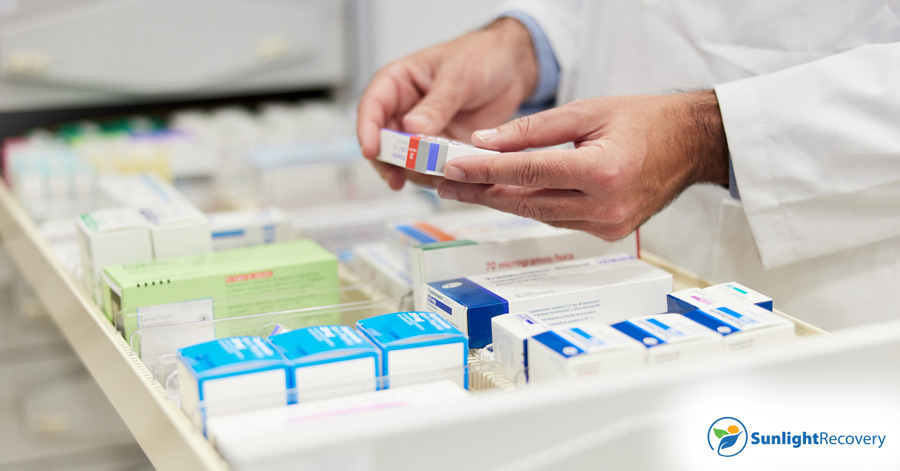Ibudilast is an anti-inflammatory drug used in Japan to treat asthma, multiple sclerosis and strokes. It’s regarded as a safe drug to take, with very few serious side effects. But another significant use for ibudilast was recently discovered by UCLA researchers: The drug appears to be effective in helping people overcome alcoholism and opioid drug addiction.
Although alcohol use disorder can’t be cured by a miracle drug, ibudilast is delivering promising results — especially to heavy drinkers and alcohol-dependent individuals. The medication is usually taken twice a day in pill form, making it easy to administer.
Ibudilast is a neuroimmune modulator, which essentially means it inhibits the pleasure responses to alcohol. It should be used in conjunction with intensive therapy to diagnose the underlying mental health issues, biological factors and environmental causes for addiction, but a recent case study shows that alcohol-dependent individuals who were treated with ibudilast were 45.5% less likely to drink heavily.
The UCLA study mentioned above held clinical trials for 6 days, using a control group with a placebo and the experimental group for ibudilast. The groups were switched at various stages, and each group reported feeling fewer cravings for alcohol while on the medication, with a notable improvement in mood.
Read on to learn more about how ibudilast can help with alcohol addiction and cravings and how it can be used as a complementary therapy.
Ibudilast Versus Other Medications
The best way to stop heavy drinking is to abstain from alcohol, but this isn’t always possible if you have mental health issues. Going into recovery is the next best option, but if this isn’t possible either, there are an array of medications that can help. Prescribed medications provide a temporary solution while you arrange the help you need to stop heavy and binge drinking. Note that these medications won’t work if you’re abusing drugs.
Ibudilast is a relatively new discovery in the pharmaceutical world and differs from other anti-alcohol medications in that it simultaneously improves mood and curbs the desire for alcohol. Its mechanisms include anti-inflammatory properties, responsible for blocking inflammation, and neuroprotective effects, responsible for regeneration of neural pathways and the nervous system. Ibudilast is also being used to help opioid and meth users with their addictions.
Other popular medications on the market that curb alcohol dependence include naltrexone and disulfiram (Antabuse). Naltrexone, also referred to as ReVia, blocks the pleasure center of the brain that responds to alcohol and drug cravings, reducing your desire to take these substances.
Another prescription medication is acamprosate, which works by normalizing messages to the brain that are affected by alcohol withdrawal. The medication also repairs the brain’s ability to function properly in alcoholics who’ve spent years abusing alcohol and experience cognitive impairment as a result. While it doesn’t completely eradicate withdrawal symptoms, Acamprosate can help stop cravings and the desire to drink.
Disulfiram, otherwise known as Antabuse, acts as an emetic when consumed with alcohol. While this should only be used as an extreme measure, the body’s negative physical reaction to Antabuse can curb your overall craving for alcohol.
When alcohol enters the bloodstream, the liver turns the ethanol into the toxin acetaldehyde, which is then turned into acetic acid in the body. Disulfiram prevents the body from turning acetaldehyde into acetic acid, causing a buildup of acetaldehyde and subsequent nausea. Antabuse can also cause an irregular heartbeat and flushing in the face.
Overall, the side effects of ibudilast are mild, making it a promising pharmacotherapy drug for alcoholics.
Side Effects of Ibudilast
Like most prescription medications, there are side effects to taking this oral capsule. Given ibudilast’s powerful neuro and anti-inflammatory effects, it’s quite remarkable that the drug’s side effects are mild. There have been no major reported side effects, such as an increased risk for cancer or infection.
Common side effects include:
- Headaches
- Mild nausea
- Respiratory tract and sinus infections
- Insomnia
- Dry skin and rash
- Stomach issues, such as diarrhea
Future Prospects for Ibudilast
According to a study published in the National Library of Medicine, 100mg per day of ibudilast reduced both tonic- and cue-induced cravings in people who had a healthy relationship with alcohol. The drug also improved their mood overall. These findings are one of the many studies regarded by health care professionals as evidence that ibudilast should be used as part of alcohol treatment plans.
Globally, there are over 283 million people whose mental health is affected by their addiction to alcohol. Abuse of alcohol is also one of the leading causes of death in the world, which is why research is underway for new medications.
Currently, there are only four drugs approved by the FDA: acamprosate, nalmefene, disulfiram and naltrexone. Ibudilast isn’t FDA-approved due to its newness, but it’s being fast-tracked for approval and is currently in the next phase. To add to its credibility, the drug has been used for decades in Japan and has a good safety profile.
Ibudilast does have a place in assisting alcoholics to lead a sober lifestyle, but it’s critical not to self-prescribe. This drug should be recommended by a specialist and make up only part of the recovery process, which can include counseling, group therapy and inpatient or outpatient treatment.
Get Help If You’re Dependent on Alcohol
Binge drinking, heavy drinking and alcoholism are all a form of dependency. You can get to the root of the problem by joining support groups, taking medication, seeing a psychiatrist or admitting yourself into rehab. Prescribed anti-alcohol drugs can be worked into your sobriety plan, but there need to be supportive solutions.
If alcohol looms large in your life, contact the trained, compassionate professionals at Sunlight Recovery to find out which detox and residential program is best suited to your needs. A qualified counselor and practitioner will be instrumental in helping you reach your recovery goals.






